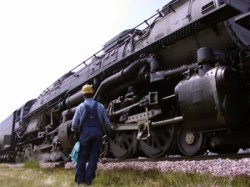Top Class Actions’s website and social media posts use affiliate links. If you make a purchase using such links, we may receive a commission, but it will not result in any additional charges to you. Please review our Affiliate Link Disclosure for more information.

The Labor Department said BNSF filed disciplinary charges against the injured railroad worker after he reported the injury, which occurred in November 2010. The injured railroad worker filed a Federal Railroad Safety Act anti-discrimination complaint with the Occupational Safety and Health Administration in February 2011, according to the Department of Labor statement.
The federal agency said company officials fired him in August 2011 despite knowing that his injury report was protected by law. Investigators from OSHA concluded that the railroad violated federal laws protecting whistleblowers.
As a result, OSHA ordered the railroad to pay punitive and compensatory damages. It also said BNSF must rehire the injured railroad worker and expunge his record of all charges and disciplinary action.
Such stories involving railroad companies are not unusual when it comes to injured railroad workers. Many injured railroad employees are not aware that they are protected by the Federal Employers Liability Act (FELA).
What is the Federal Employers Liability Act?
Long before state workers compensation laws came into existence, Congress worked to protect the rights of injured railroad workers through enactment of the Federal Employers Liability Act (FELA). Under FELA, injured railroad workers can seek damages in court for injuries suffered while on the job.
FELA claims are similar to workers compensation claims in that both systems are designed to compensate employees who are injured at work. However, the similarities between the two systems generally end there.
In a workers compensation claim the injured employee is not required to prove that the employer was negligent or otherwise at fault for the injury. The injured employee needs to show only that the injury occurred while in the course and scope of the employment.
In a FELA claim, by contrast, the injured railroad worker is required to show that the employer was not only negligent, but that the negligence was also a cause of the railroad injury. In this way, a worker making a FELA claim has a higher hurdle to clear, when compared with a workers compensation claim.
There are other differences between the two systems as well. In a workers compensation claim, the compensation to the injured employee is generally limited to medical expenses, lost income, and compensation for any resulting disability. The damages recoverable through a FELA claim, however, are more extensive. They can include:
- Past and future medical expenses
- Past and future lost wages
- Physical pain and suffering
- Mental and emotional suffering
- Loss of earning capacity
- Permanent partial or full disability
Injured Railroad Worker Lawsuits
If you are a injured railroad worker, you may have a FELA railroad injury lawsuit. FELA has existed for more than a century, and it protects the rights and health of injured railroad workers.
Railroad worker injury lawsuits seek financial compensation for injuries and deaths that occur to railroad employees on the job. If you are a family member of a railroad employee who died on the job, you can also file a FELA lawsuit on behalf of your loved one.
Obtain a Free Railroad Injury Case Evaluation
If you or a loved one suffered a railroad injury on the job, you may be eligible to take legal action against the employer and seek compensation for your injuries.














